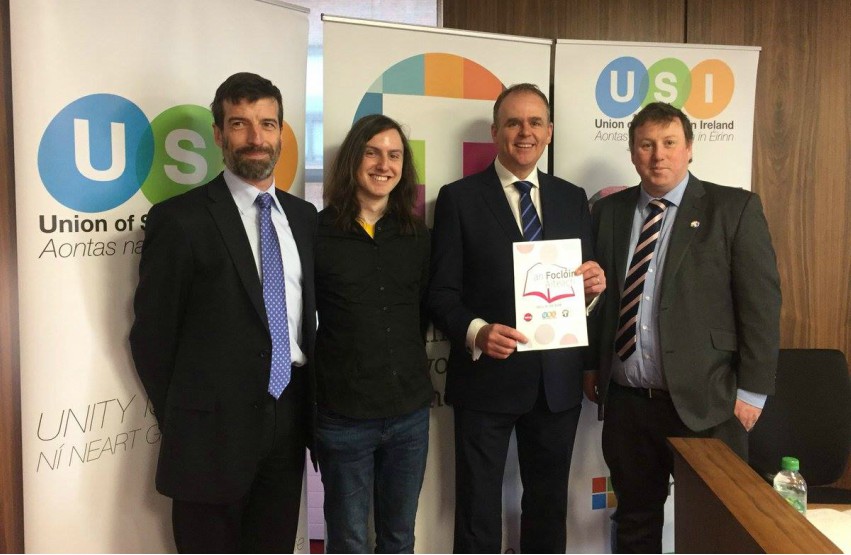The launch of the Foclóir Aiteach (the Queer Dictionary). | Photo: Facebook/TENI
For the first time LGBTI people will be able to speak about themselves in Irish thanks to a new dictionary.
The Foclóir Aiteach (The Queer Dictionary) was launched last week and is a handy guide in how to speak about LGBTI people in Irish (Gaeilge).
The Union of Students in Ireland (USI), BelonG To Youth Services, and the Transgender Equality Network of Ireland (TENI) worked together to compile the dictionary.
It is the first many of the words were translated into Irish. The dictionary will LGBTI people to speak about their lives in the Irish language.
Leispiach and Aerach (lesbian and gay)
More than 100 words and terms are in the dictionary including; trasinscneach (transgender), neamh-dhénártha (non-binary), aiteach (queer) and painghnéasach (pansexual).
The dictionary was ‘a truly defining moment for gender identity, gender expression and sexual orientation in Ireland’. That was according to TENI board member, Cearbhall Turrain.
‘In recent times, Ireland has developed a reputation as something of a world leader on LGBT rights, particularly with the introduction of marriage equality and our groundbreaking Gender Recognition Act,’ Turrain told the Irish Times.
‘Yet how we express our identity as LGBT people and and how we express our Irish identity often seemed like separate, rather than intersecting, areas of Irish life.’
USI made the dictionary because it is ‘right that everyone would be able to recognise themselves in any language, and that they would be able to describe themselves in any language’.
‘The Irish language showed us that she was up to this challenge, and it gives us great pleasure to say that we succeeded in putting The Queer Dictionary together,’ the USI said in a statement.
‘As language changes, and as people change, however, the Dictionary will change in the future. It is a working document.’
The Irish Minister of State for the Gaeltacht Joe McHugh was at the launch.
‘It is important to keep the language alive and there’s something nice about bringing it from the bottom up. I think it’s very clever, “an-cliste” (smart), way of doing it,’ he said.
‘You are adding to the language, strengthening it. This kind of initiative does keep the language alive, and close to the heart.’







